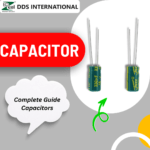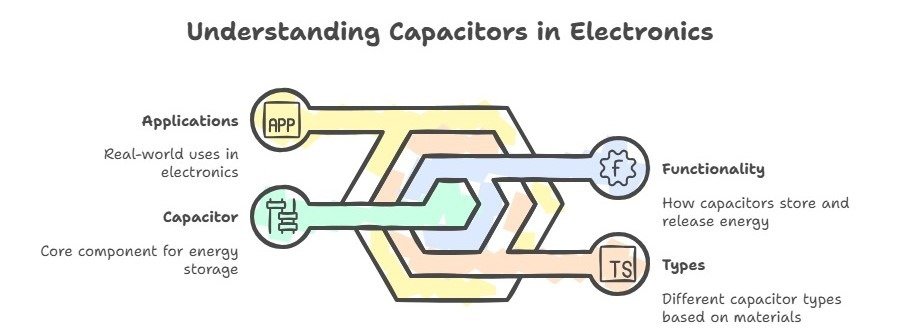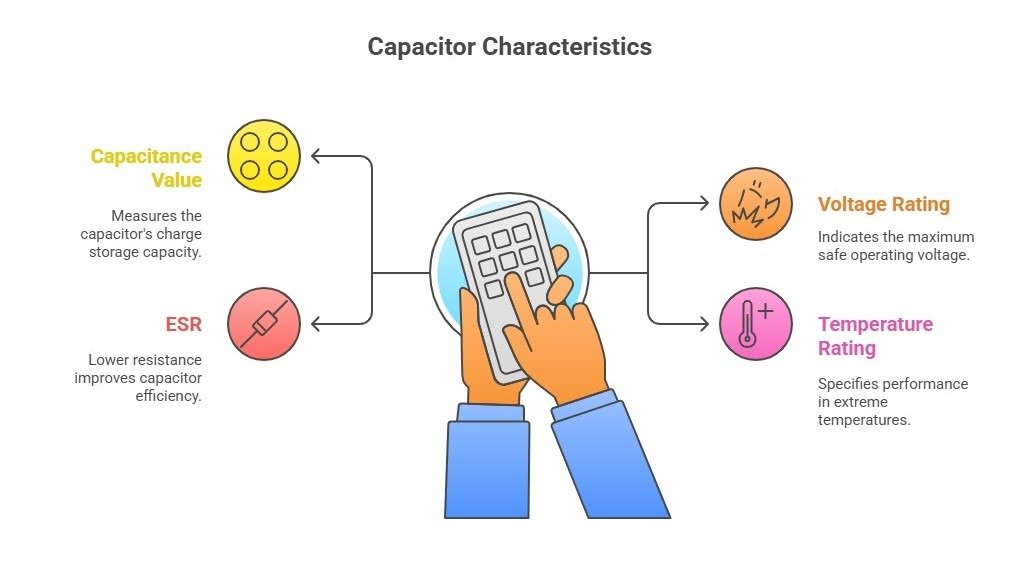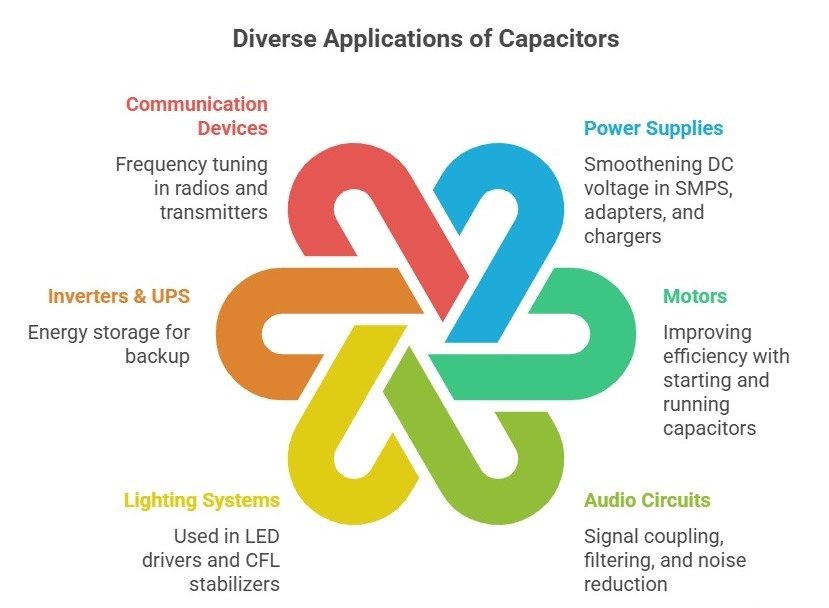What is Capacitor in Electronics? – A Complete Guide for Engineers and OEMs

Complete Guide to Capacitors: Working, Types, and Applications for Engineers & OEMs
Capacitors are one of the most widely used components in electronics, yet many people only have a basic idea of what they actually do. If you are designing circuits, repairing power supplies, or sourcing components for industrial projects, understanding capacitors is essential.
In this blog, we’ll explain what a capacitor is in electronics, how it works, its different types, and where it is used in real-life applications.
What is a Capacitor in Electronics?

A capacitor in electronics is a passive two-terminal device that stores electrical energy in an electric field. It consists of two conductive plates separated by an insulating material known as the dielectric. When voltage is applied, the plates accumulate charge, which can later be released when the circuit requires it.
Definition:
A capacitor stores and releases electrical energy, helping circuits manage voltage, current flow, and signal stability.
How Does a Capacitor Work?
The basic function of a capacitor is to charge and discharge quickly. When connected to a power source, it stores energy. When the supply fluctuates or cuts off, it discharges the stored energy to keep the circuit stable.
This property makes capacitors essential in:
- Filtering ripples in DC after rectification
- Coupling and decoupling signals in communication circuits
- Energy storage in power backup systems
In simple words, capacitors act as temporary batteries inside a circuit.
Key Features of Capacitors

When engineers select capacitors, they focus on important parameters such as:
- Capacitance Value (µF, nF, pF): How much charge the capacitor can store.
- Voltage Rating: Maximum voltage it can safely handle.
- ESR (Equivalent Series Resistance): Lower ESR means better efficiency.
- Temperature Rating: Defines performance in harsh industrial environments.
Common Types of Capacitors in Electronics
Electrolytic Capacitors
- High capacitance values
- Used in power supplies and energy storage
- Polarized (must be connected correctly)
Ceramic Capacitors
- Small, inexpensive, and stable
- Suitable for high-frequency circuits and noise filtering
Film Capacitors
- Excellent stability and durability
- Commonly used in industrial electronics and audio systems
Tantalum Capacitors
- Compact, reliable, and long-lasting
- Ideal for precision devices and medical electronics
SMD Capacitors
- Surface-mount type
- Designed for compact PCBs in modern gadgets
Applications of Capacitors in Electronics

Capacitors are found in almost every electronic device. Some major applications include:
- Power Supplies: Smoothening DC voltage in SMPS, adapters, and chargers.
- Motors: Starting and running capacitors improve efficiency.
- Audio Circuits: Signal coupling, filtering, and noise reduction.
- Lighting Systems: Used in LED drivers and CFL stabilizers.
- Inverters & UPS: Energy storage for backup.
- Communication Devices: Frequency tuning in radios and transmitters.
Why Capacitors Are Important for OEMs and Engineers
For OEMs, R&D engineers, and industrial buyers, choosing the right capacitor means:
- Reliable product performance
- Longer lifespan of equipment
- Reduced maintenance costs
- Improved customer satisfaction
This is why partnering with authorised distributors like DDS International – Edzeal ensures you get capacitors that meet global quality standards.
Buy High-Quality Capacitors in India
At DDS International – Edzeal, we supply a wide range of capacitors, including:
- JWCO Electrolytic & Solid Capacitors
- Edzeal and DVAN Electrolytic Capacitors
- DVAN & NDF Ceramic Capacitors
Why Choose Us?
- Authorised distributor of JWCO capacitors in India
- Bulk orders and OEM pricing
- Verified datasheets with ripple current ratings
- Reliable stock and fast delivery across India
Conclusion
Now that you understand what a capacitor is in electronics, it’s clear why they are indispensable in every circuit – from small mobile chargers to large industrial power systems. The right capacitor improves stability, reliability, and efficiency of your design.
FAQs
If you are an OEM or repair engineer looking for genuine capacitors in India, explore our wide range of JWCO, DVAN, NDF and Edzeal capacitors today.
Q1. What is a capacitor?
A component that stores and releases electrical energy in a circuit.
Q2. Types of capacitors?
Electrolytic, Ceramic, Film, Tantalum, and SMD capacitors.
Q3. Where are capacitors used?
In power supplies, motors, inverters, LED drivers, audio & communication devices.
Q4. How does a capacitor work?
It charges from a power source and discharges when needed to stabilize circuits.



